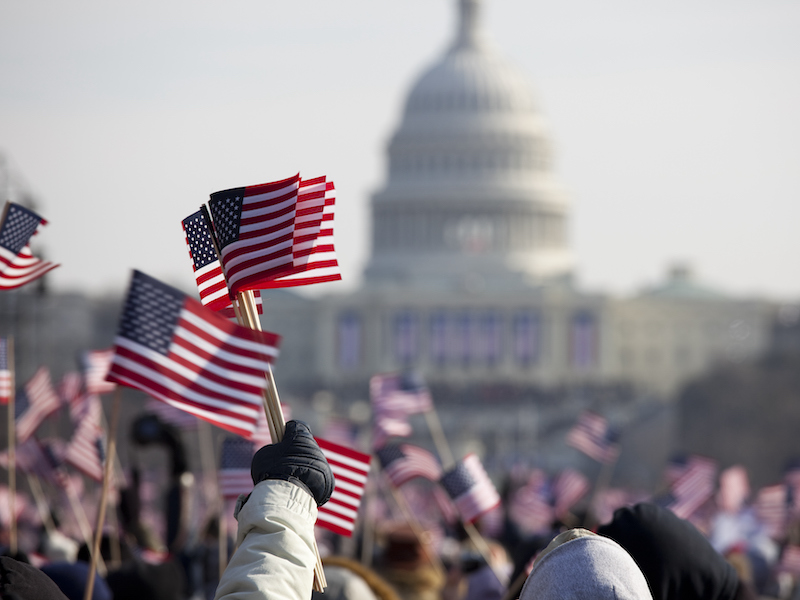
The decisive U.S. election results have implications for the U.S. banking industry, primarily from the prospect of lighter-touch regulation, according to Morningstar DBRS.
In a new report, the rating agency said that it doesn’t see an immediate credit impact for the sector due to the outcome of the election.
“While the results of the U.S. elections bring the prospects of lower corporate taxes and deregulation, we do not expect bank credit fundamentals to be significantly impacted, consistent with our view following the 2016 election,” the report noted.
Over the past year, the industry and regulators have already tussled over the implementation of the final edition of the global capital reforms, known as Basel III endgame rules in the U.S., which resulted in a tempering of regulators’ demands.
Now, the prospect of more bank-friendly regulators could result in a further weakening, or delay, of those final capital requirements, DBRS said.
“However, these changes would likely have the greatest impact on the regional banks while global systemically important banks would likely see less of an impact,” it said — noting that regulatory policy under the previous Trump administration primarily benefited smaller banks, and only marginally aided the big, global banks.
“Any changes will likely wait for new regulatory leadership at the Office of the Comptroller of the Currency in 2025, and work associated with the revised rules will likely be paused before the proposal is resubmitted for another public comment period,” it said.
Similarly, the power of the Consumer Financial Protection Bureau could be sharply curtailed under a new head for that agency.
“However, Trump did campaign on capping credit card interest rates at 10%, which would have a significant impact on the industry, if enacted,” it said.
Finally, the regulatory environment could be more conducive to merger and acquisition activity under the new regime, according to the report.
“The M&A landscape for banks may also benefit with shorter approval timeframes, which may accelerate consolidation trends,” it said — adding that the conditions for deal activity are already starting to improve, “with a more conducive interest rate environment and stable asset quality metrics, as well as better visibility on capital requirements.”
The banks’ M&A divisions may also benefit from increased deal activity among their clients, it noted.
More broadly, the prospect of sharply higher tariffs, which would have a negative impact on global trade and economic growth, would also filter down to the banking industry.
“The impact of potential tariffs on certain sectors of banks’ loan books or customers’ supply chains remains an unknown,” the report said. “We expect the next administration will raise tariffs but primarily in a targeted way. However, the imposition of widespread tariffs could adversely impact many sectors and raise inflationary pressures.”
In a separate report, DBRS said that uncertainty about the reality of future U.S. trade policy could dampen investment in the short term. Ultimately, it expects the new administration to threaten higher tariffs as a tactic to extract concessions from U.S. trading partners.
“The economic cost of protectionist posturing could deter the Trump administration from a widespread and aggressive application of tariffs,” it said.
More industry-friendly regulation could also favour the energy industry with weaker vehicle emissions standards, opening more federal land for drilling, and easier approvals for energy infrastructure, it also noted.
“However, even under unified Republican control, we expect most of President Biden’s major climate legislation — the Inflation Reduction Act — to remain in place,” it said, given that, “many Republican lawmakers support parts of the legislation, including the incentives for battery manufacturing, critical minerals processing and the development of nuclear power.”
And, tax cuts that are scheduled to expire at the end of 2025 will likely be extended, DBRS said.
“If the Republicans win the House, we could even see new tax cuts, including a lower corporate income tax rate. Nevertheless, lawmakers will likely balk at some of the tax cut proposals made by Trump during the campaign, such as a tax exemption on social security income,” it said.
And, while the Republicans have regained control of the Senate, they will be constrained as their majority remains short of the threshold needed to defeat filibusters, so, “the composition of Congress will still act as a constraint on Republican policymaking,” it said.
At this point, the overall economic impact of the election results, and its implications for federal policy over the next two years, “looks growth neutral and could be modestly inflationary, although the cumulative impact will be driven by the policy details,” the report said.
“The fiscal outlook and the market’s tolerance for higher deficits could present a challenge to the next administration,” it also cautioned.
“The U.S. fiscal deficit remains a source of concern and the extension of tax cuts will make it worse. If policymakers are unwilling to address the government’s sizable and growing fiscal imbalance, public debt metrics will continue deteriorating over the medium term, and will eventually end up weakening the country’s growth prospects and resilience to shocks,” it said.